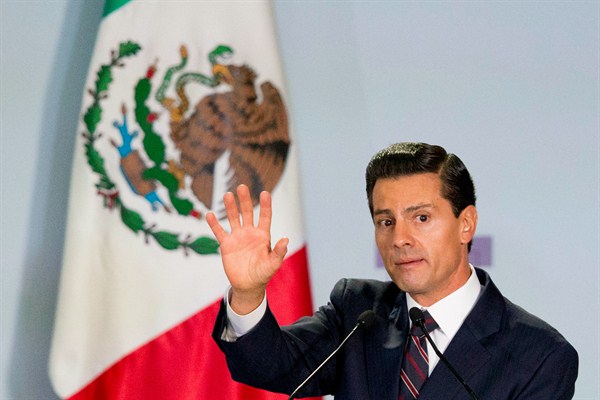The results of Mexico’s local elections on Sunday, June 5, represent a nadir for President Enrique Pena Nieto and the dawn of his administration’s long exit. Pena Nieto’s Institutional Revolutionary Party, or PRI—the erstwhile hegemon that he led back to power after more than a decade in the opposition in 2012—lost seven of Mexico’s 12 gubernatorial races, which were the centerpiece of the day’s contests. While that may not sound like much, the PRI dramatically underperformed both its leaders’ and most pollsters’ predictions. This leaves the party in charge of just 15 of Mexico’s 32 states, its lowest number since the party was founded in 1929. Four of the states that voted for the opposition—including Veracruz, the third-most-populous state in the country—had never previously rejected a PRI candidate for governor.
This was a massive blow both to the president and the immediate future. After having performed well at the polls in virtually every major election day since its loss in the 2006 presidential race, the party suffered an unmitigated debacle and has now lost its air of supremacy. The PRI’s grip has also been loosened on one of the chief sources of its power nationally: its control over the nation’s governorships, which wield enormous power over spending projects and congressional delegations alike. In the election’s aftermath, PRI leaders called for humility and introspection, while opposition figures, such as former first lady Margarita Zavala, the wife of former President Felipe Calderon, seemed giddy with the prospect of stealing the presidency away from the PRI in 2018. The loss will reverberate into the future.
For Pena Nieto personally, the electoral setback represents the culmination of years of popular frustration with his administration. Local factors clearly played a role in the results. In the border state of Tamaulipas, for instance, two prior PRI governors have been indicted by U.S. prosecutors in recent years for colluding with drug traffickers, and the PRI candidate this cycle faced similar allegations.

